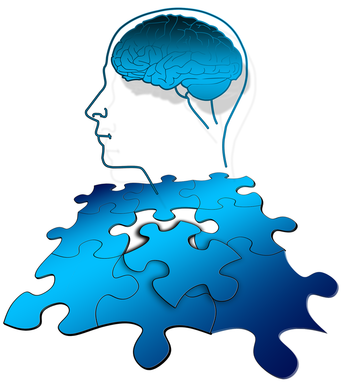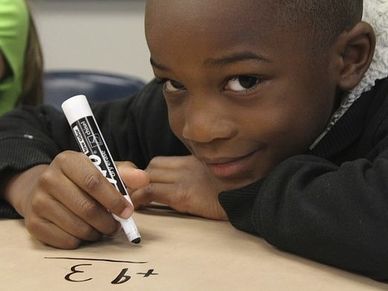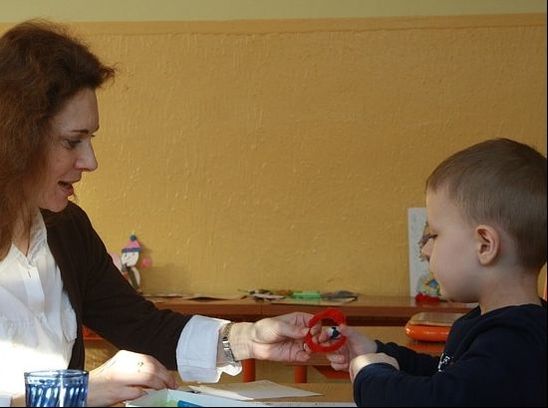I've seen this before when it comes to diagnosing Attention-Deficit/Hyperactivity Disorder or shall I say, misdiagnosing it. Both of these disorders require intensive assessment to make sure we're both identifying and treating the true condition. After all, symptoms of ADHD overlap at least 17 other diagnosable disorders, one of which is autism.

When parents called to ask questions about an assessment and decided from the phone interview that they wanted to come in for the complimentary consultation, I'd see them for 90-120 minutes. We'd ferret out the issues, outline the assessment plan, sign the required forms and I'd give them the rating scales and extensive developmental history to complete.
I would then arrange to conduct at least two "blind" classroom observations. They were "blind" because my student had not met me yet. I didn't know them, either, and teachers had to identify them in some "secret" way so as to not give me away. I saw my student in the classroom and in unstructured settings at least twice. Very valuable.
In my experience of 23 years assessing children, teens and young adults in private practice, getting all the information I need without "wounding" a person with autism can take 15-20 ninety-minute sessions. Before I start the assessment, I ask parents to bring them in to see me and my office. Actually, I do this with all students. They're in charge. If they decide they like me and want to work with me, we go forward. Just one kid refused me and he wasn't autistic. He was a hardened gang member in chains..14 and on the wrong road.
I ask parents to refer to me only as "Miss Claudia" because the title of "doctor" means something different to kids than to adults. I ask parents to tell their kids that I'm a learning detective because that's a more accurate picture of me than the confusing title of "psychologist".

We play games like Connect Four or they bring in their favorite things so I can get a sense of their coping skills. Or, they just come by to hang out for 20 minutes or so. Oftentimes, they bring in books and objects from their preferred interests.
For me, the process was not about getting the results. It was about getting results that I could trust in order to plan for services and placement that would support the building of a child's life.
When we worked through some tasks, we moved from the table and chairs to the sofas. Sometimes, they laid on the floor...once a kid insisted on laying under the coffee table while I asked the questions from the social-emotional rating scales. I quickly made cards with numbers on them for the answers so he could put his arm out from under the table to respond. He struggled so tremendously with acknowledging his emotions that he couldn't face me and talk about his feelings.
I adapted the environment to meet their needs. They were allowed to take off their shoes and wrap themselves in the blankets. We turned off the overhead fluorescent lights and worked by the daylight coming in from the windows next to the test table.
They were allowed to take breaks and visit their mom in the waiting room or just walk about the room or hallway. Or, we talked about their preferred topics of interest. For many of my boys on the spectrum, their preferred topic was World War II. They brought in books and we discussed the generals, the battles, the weapons. It was fantastic. I learned so much.
Whatever it took to make them comfie, we did it.
Wechsler Intelligence Scale for Children-5th Edition*
Wechsler Adult Intelligence Scale-4th Edition-for those over 16
Leiter International Performance Scale-3rd Edition
To measure achievement in reading, math, writing and general knowledge:
Reading:
Woodcock-Johnson III Diagnostic Reading Battery
Gray Oral Reading Tests-5th Edition
Gray Silent Reading Tests
Tests of Reading Comprehension-4th Edition
Woodcock-Johnson Tests of Achievement-4th Edition
Reading subtests:
Letter-Word Identification
Passage Comprehension
Reading Vocabulary
Reading Recall
Oral Reading
Gray Oral Reading Tests-5th Edition
Gray Silent Reading Tests
Nelson-Denny Reading Tests-for high school students
Mathematics:
Key Math 3 Diagnostic Assessment
Woodcock-Johnson Tests of Achievement-4th Edition
Mathematics subtests:
Calculation
Applied Problems
Number Matrices
Orleans-Hanna Algebra Prognosis Test-3rd Edition
Written Language:
Woodcock-Johnson Tests of Achievement-4th Edition
Written Language subtests:
Spelling
Writing Samples
Editing
Spelling of Sounds
Tests of Written Language-4th Edition
To measure processing skills:
Test of Memory and Learning-2nd Edition
The Listening Comprehension Test-2nd Edition
The Listening Comprehension Test-Adolescent
Rey Complex Figure and Recognition Trial
Bender Visual Motor Gestalt-2nd Edition
Wold Sentence Copy
Conners 3 Rating Scales/Long Form: completed by teachers, parents and students over the age of 9
Woodcock-Johnson Tests of Achievement-4th Edition
Fluency subtests:
Sentence Reading Fluency
Word Reading Fluency
Math Facts Fluency
Sentence Writing Fluency
Behavior Rating Inventory of Executive Functioning-2nd Edition: completed by parents, teachers and students over the age of 11
To measure social-emotional development and functioning:
Behavior Assessment Scale for Children-3rd Edition: completed by parents, teachers and students (there are child, adolescent and college versions)
Revised Children's Manifest Anxiety Scale-2nd Edition
Reynolds Child Depression Scale-2nd Edition
Reynolds Adolescent Depression Scale-2nd Edition
Millon Pre-Adolescent Clinical Inventory
Million Adolescent Clinical Inventory
Gilliam Autism Rating Scale-3rd Edition: completed by parents
Test of Problem-Solving/Elementary-Third Edition
Test of Problem-Solving Adolescent-2nd Edition
Autism Diagnostic Observation Schedule-2nd Edition
Social Responsiveness Scale-2nd Edition: completed by parents and teachers
Vineland Adaptive Behavior Scale-3rd Edition: Parent Interview Edition (in- office interview)
This list was created in 2017 and it is likely that some of these tests will have more recent versions (5th Edition, etc) than what I am listing here.
As well, if insight is limited, the Millon inventories may not yield interpretable results, but they might. Until the inventory is administered, the validity of the results can't be known.
Parents completed an extensive (36-pages) developmental history to document their child's life from conception to the present time.
I conducted an extensive review of the records and documented the efforts by the school district and private clinicians/agencies.
I scored the tests and met with parents for a detailed feedback session and with the child for a "highlights" feedback session focusing on "what" will happen to help them.
I wrote a comprehensive report with a subtest-by-subtest analysis designed to give parents the examiner's experience. Essentially, they saw their child completing the tasks through the examiner's eyes.
Many children on the spectrum who come to me for assessment are not being served, competently, in accordance with their needs and parents are challenging the district, so documenting the failures of the system to meet the child's needs is critical.
Even when parents are not challenging the district, I employ this assessment plan because it provides invaluable baseline data to track a child's progress.
Parents often ask, "Isn't that a lot of testing?" Yes, it is. My strategy to avoid frustration and boredom, to maintain rapport and motivation was to have a "revolving door" of tasks. We might do a reading task for 10 minutes, then move to a drawing task, then math for 10 minutes, and then part of a rating scale and so on. In this way, my kid's dopamine continued to flow because of the novelty of the schedule.
I always told my kids about the tasks that needed to be done for the day (if I could get away with that) and asked them what they wanted to do first. Once that task was completed, I asked them what they wanted to do next. I reminded them that when we do rating scales (I don't call them that), "we move to the sofa". They quickly learned to ask for the "sofa stuff". They sat on the sofa, put their feet on the coffee table and we worked!
You can appreciate that a 10-minute session does not afford a clinician the opportunity to see what I need to see in order to competently characterize a child's global skill set.
By administering these tests myself, I gleaned a tremendous amount of data from the behavioral observations. I was able to answer questions such as, "What strategy did she use to do this?" "How well did he tolerate this task?" "Did he balk at this?" "What was her stamina, task persistence and attention span for this?"
The real data from an assessment isn't in the numbers, it's in the "how did they do it?"
From their approach to the task, I could determine if they had metacognitive and metamemory skills. Metacognitive skills are those problem-solving approaches a student is aware of and selects to accomplish the task. Metamemory skills are those memory strategies of which a student is aware, chooses and refine as they move through a memory-based task.
I could tell if they had inductive (parts to whole) and deductive (whole to parts) verbal and visual reasoning. I could get a good read on their competence with task analysis or how they break down tasks and set about completing them.
If you get an assessment done, do your best to choose a clinician who is sensitive to your child's unique needs and who has the experience in school settings and with educational as well as developmental issues.
Claudia
Follow me on Facebook at Dr. Claudia McCulloch





